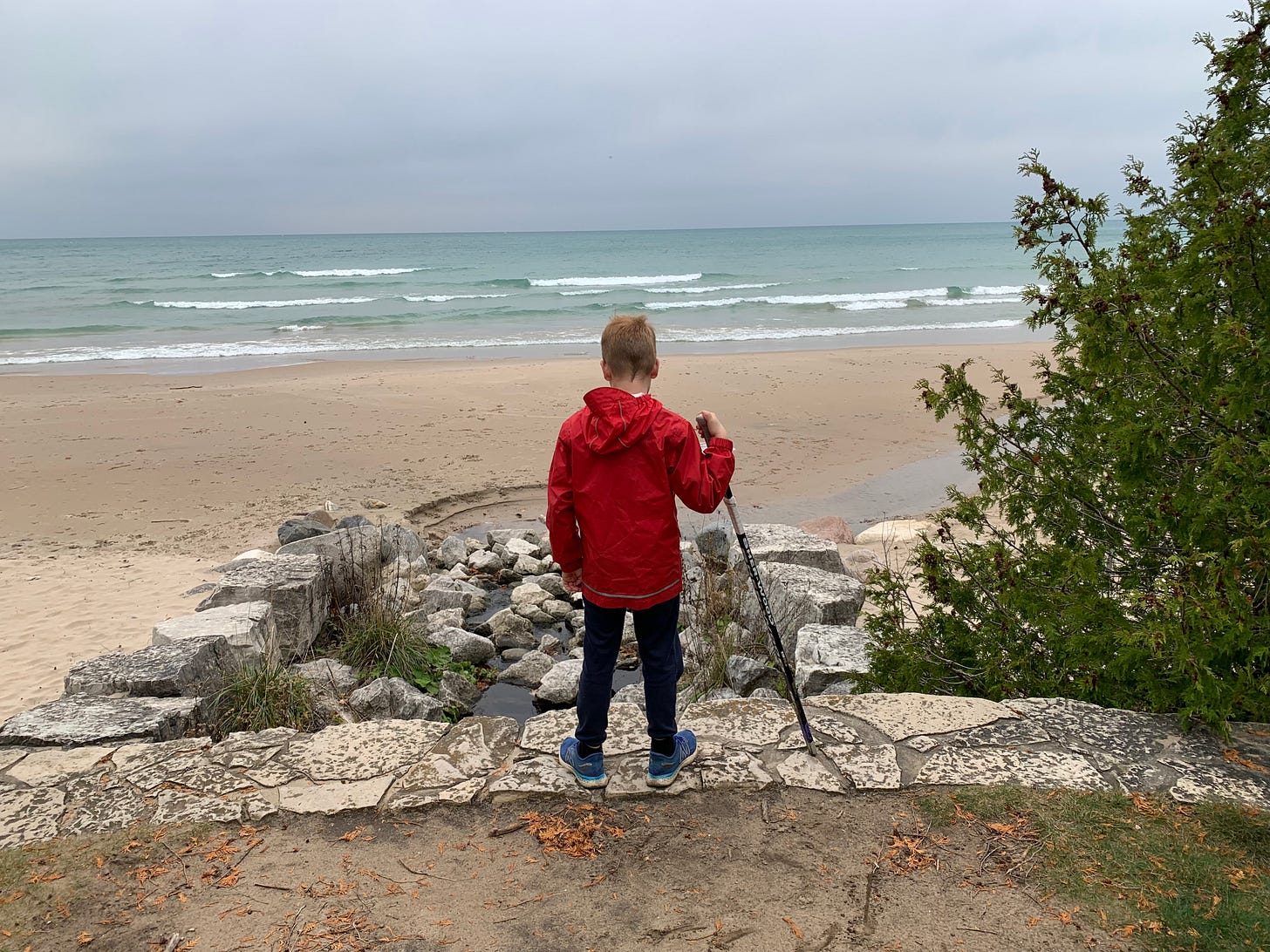Three Things, Week 47.23
The Minimalists on social media, smartphones as 'experience blockers', and a child's delightful immersion in life
Welcome, new subscribers! I wrote a short piece last week for the Let Grow blog called “If You Curtail Your Kid’s Screen Time, What Can Fill the Void?” It appears to have attracted lots of new readers, which is wonderful.
I was delighted to have a guest post on Let Grow, as its co-founder Lenore Skenazy has been a long-time professional acquaintance of mine. She even wrote the foreword for my book, Childhood Unplugged, in her quintessential lively style. (There aren’t many people who can incorporate references to microdosing into a parenting book, but she managed to do so, much to my editor’s initial alarm, which eventually morphed into acceptance and amusement.)
This week has a been a blur of busyness. I am preparing for a trip to British Columbia next week, where I will be speaking at events in Whistler and Squamish about digital minimalist parenting, so there has been much writing, editing, and rehearsing to do for that. If you’re in the area, please come out! Here are three things that caught my attention this week:
1. The Minimalists on not letting kids use social media
Do you know The Minimalists, the Emmy-nominated Netflix stars and New York Times–bestselling authors Joshua Fields Millburn and Ryan Nicodemus? They’ve been around for years, writing and talking about reducing clutter and living with greater meaning. I used to review their content regularly for Treehugger, when I worked there.
Now Joshua has a 10-year-old daughter and he’s not letting her use social media. In an interview, he explains why he doesn’t intend to let her use it until she’s 18. He views social media as being similar to cigarettes and alcohol—harmful and addictive substances that a young mind is not yet capable of handling.
When asked how he intends to pull that off, Joshua replies, “The thing is, if you give someone a compelling enough reason to not have it, then you’re allowed to say no.” (He really likes the word “compelling,” but it works here.) He goes on:
“The reason I don’t want my daughter and her young mind using social media is not because I think social media is evil or bad… I’m going to give her a compelling enough life that social media is going to seem not that compelling to her. Because what happens when you don’t have a compelling life? Then we become compelled by the validation of others through our glowing screen.”
This is so true, and it’s a point I make repeatedly in presentations—that we as parents have a responsibility to help make our kids’ offline lives interesting. You can’t take away screens and expect kids to know what to do automatically, especially if they’ve been getting hundreds of notifications daily and are spending upwards of 6 to 9 hours a day on their devices, which is the average for preteens and teens, respectively.
We have to guide them, help them to develop offline hobbies and interests, and model lifestyle habits that prove the real world is worth living in. Make their offline lives interesting enough that they crave their phones less. It takes work, but it’s fun work—and everyone in a family benefits.
2. Smartphones as ‘experience blockers’ for kids
The moment I heard this analogy from NYU psychology professor Jonathan Haidt, I had a huge grin on my face. It’s brilliant, describing smartphones as “experience blockers,” and it really gets at the essence of what’s wrong with giving these devices to kids too soon and too much.
When you hand a kid a phone, you give them a device that blocks out the real world. Sure, they can text and watch videos and feel perpetually, shallowly entertained (sort of), and the parent gets a few hours of peace and quiet—but at what cost? Children lose the initiative to dive into the kind of fun and games that would have entertained them in the past and contributed to their optimal physical and psychological development. They get so absorbed in an online world that they don’t hear, see, or learn from the real world. They check out, and they miss out.
This clever phrase came from a short podcast recorded in 2022 by Trinity Forum Conversations, and it featured Haidt and author Andy Crouch discussing “the moral and spiritual effects of a phone-based life.” It was a thoughtful conversation.
3. On children being fully immersed in life
Some lovely food for thought from Norwegian author Karl Ove Knausgard (via Rob Henderson’s Instagram story of Nov. 22, 2023):
“What makes life worth living? No child asks itself that question. To children, life is self-evident. Life goes without saying: whether it is good or bad makes no difference. This is because children don’t see the world, don’t observe the world, don’t contemplate the world, but are so deeply immersed in the world that they don’t distinguish between it and their own selves.”
To that, I ask, what world are they immersed in? As parents who are gatekeepers of what our children are exposed to and guides for how they spend their time, we must ensure that the world they’re melding into so wholly is the real one, not a digital facsimile that fails to offer the same opportunities for depth and growth.
In Other News:
My big, impromptu interview on CBC The National last week (I start at min 29:48) has led to some other fun conversations, including this one on a Montreal radio station, CJAD 800: “What is social media doing to kids’ brains?” It featured me and Patricia Conrod, a psychiatry and addiction professor at the Université de Montreal.
You Might Also Like:
The Profound Pleasure of Physical Tasks
Three Things: The Cocaine-Kale Phone Protocol, a Yale prof on raising successful kids, and why phones are the problem
Ode to an E-Bike






